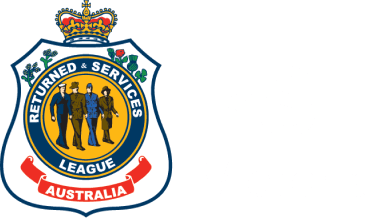This was a cricket game unlike most others, for these two teams have a unique bond on and off the field.
Afghan interpreters, who risked their lives by helping coalition forces in the war against the Taliban, united with some of the Australian veterans who served alongside them.
The Afghan Interpreter XI’s picked up their cricket bats for a friendly game of T20 cricket against the RSL Vic XI’s at Robinson Reserve in Doveton, on Sunday, March 27.
The aim, was bring Afghan interpreters and veterans together to acknowledge their service in Afghanistan, and to support those who are struggling with the aftermath of military operations, the release of the Brereton Report, and the fall of Afghanistan to the Taliban.
The two sides are hopeful the inaugural Victorian Friendship Game will also raise awareness of the plight of the thousands left behind, facing a perilous future after the Taliban recaptured the country again last year.
Anthony ‘Harry’ Moffitt, who recently retired from the Australian Defence Force after almost 30 years, most of which was with the Special Air Service (SAS), deployed to Afghanistan seven times.

The now psychologist and author of ‘Eleven Bats’ is passionate about cricket and the role it played throughout his service.
"When you have a breakout, ad-hoc game of cricket everyone gets a ball, everyone gets a bat, everyone gets a catch. It doesn’t matter age, gender, nationality, ethnicity. I’ve never failed to see people break into a laugh or smile, which is important."
Harry Moffitt
Like many of those at Sunday’s cricket match, it’s personal for Harry. He knows only too well the unique, life-long connection formed with an interpreter.
Afghan interpreters took on a range of duties from diplomatic settings, humanitarian roles and also in combat, laying on the ground beside Australian soldiers during firefights.
“To say that they were part of us, an integral part of us, would be an understatement. The bonds that were formed with some of the interpreters…I stay in touch with two interpreters that I worked with in Afghanistan. We talk monthly and we hug each other when we see each other and there’s tears when we part.”
"There’s a real sense of comradeship and brother and sisterhood because they’ve been through the thick of it with us."
Harry Moffitt
Also playing his part to organise the cricket friendly was former interpreter to coalition forces, Nisar Ahmad. He was in his early 20s and studying English in Kandahar when he volunteered to be a translator.

"I did it for my country, and my people."
Nisar Ahmad
“My people and my country were suffering from a long time ago. My hope was that one day I could see my country, and my people have a peaceful life there, that they would have stability and security and will have a bright future in a very modern country with democracy. That motivated me to help my country. Even if I could sacrifice my life for this, I would be happy.”
The reality of his new mission dawned on the very day he started working as an interpreter.
“On that same day, there was a funeral of an interpreter who died from an explosion in Zabul Province.”
Despite the disproval from his family, Nisar was determined.
"We came to the conclusion, that if I risk my life for my country, it is worth it."
Nisar Ahmad
Nisar worked as a translator for 10 years, with most of his jobs on the front line.
“24/7 we had one thought in our mind, that at any moment, any minute, it could be our last minute, anytime we could die.”
Despite remembering his time in the most precarious predicaments armed with little more than a water bottle, Nisar still manages a laugh.
“It’s funny when I tell you the story about the first day I was deployed to Zabul Province for two weeks. They gave me body amour so I thought I was safe and secure, but after a couple days I found out that there were no plates in it, it was just a vest, a piece of cloth we were wearing, and it could not defend us from anything.”
Afghan interpreters can pay a heavy price for working with coalition forces. Some, like Nisar, were targeted in Afghanistan for what was seen to be colluding with the enemy.
Luckily, he was granted a visa shortly after he finished working as an interpreter to start a new life in Australia. But, many have been left behind.
Unable to ever return to Afghanistan, he is disturbed by the reality of never seeing his brothers or sisters again, who now live under Taliban rule following Afghanistan’s recapture in August last year.
“We see our families in very high level of risk. I’m kind of traumatised and I’m kind of regretting, you know, why did I do this? Why did I do this to my family?”
Grateful for his life and future here, his past decisions weigh heavily on the 41-year-old, father of 10.
But just for a few hours at least, this cricket match was the chance to celebrate the friendships that formed under very different conditions, and nurture the effects of their shared experiences.
"It has been a joy to watch these two sides give it their all on the pitch. Their spirit of mateship, sportsmanship and remembrance of their mates who paid the ultimate sacrifice, spoke volumes about the deeper meaning behind this cricket match,"
Dr Robert Webster, OAM
“RSL Victoria is pleased to have been able to facilitate this match as a way of honouring our troops and the Afghan interpreters who stood beside them for 20 years.”
For the record, RSL XI’s were chasing 140 to win, and were all out in the 20th over for 130.

